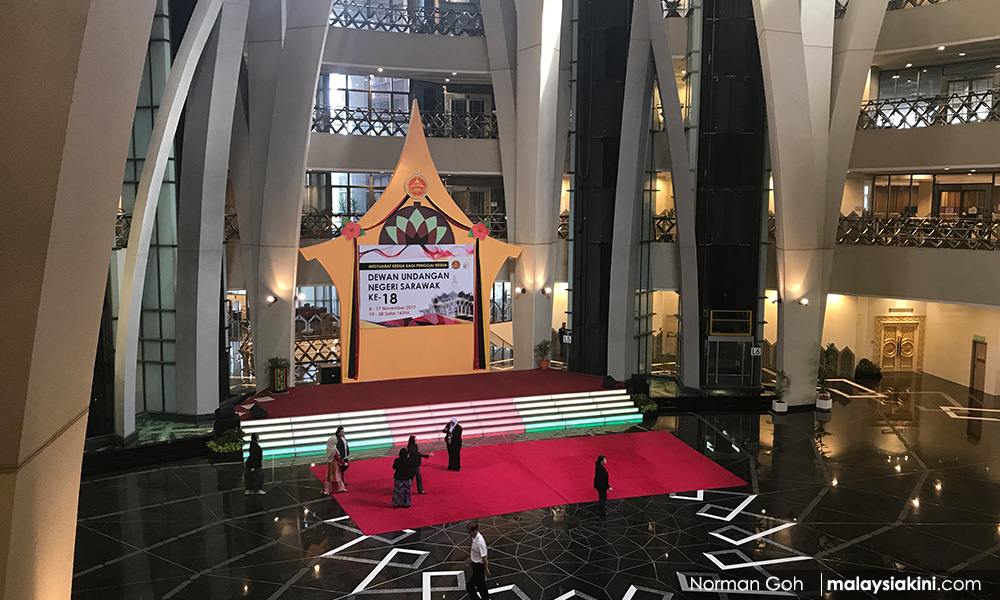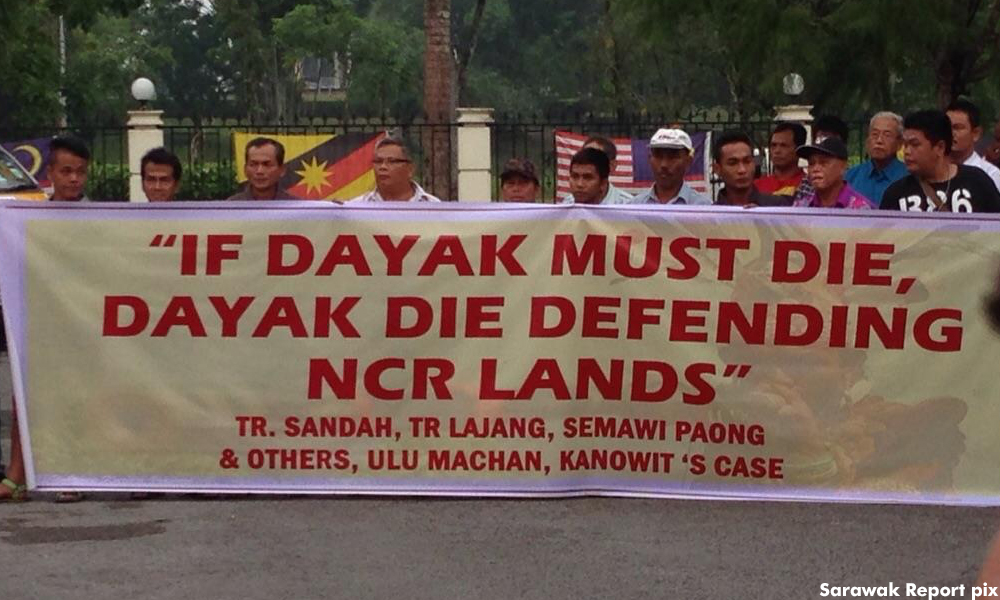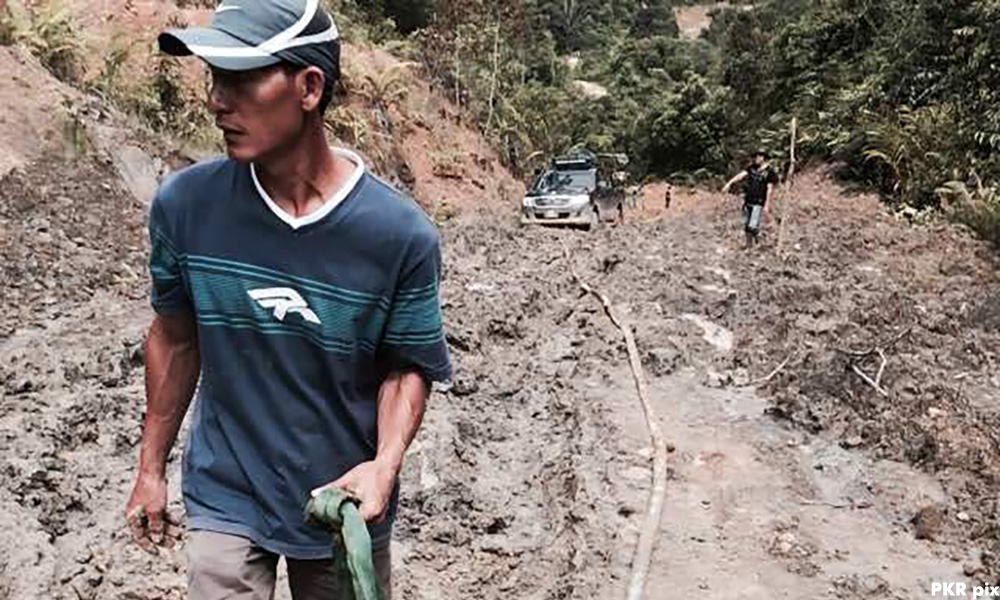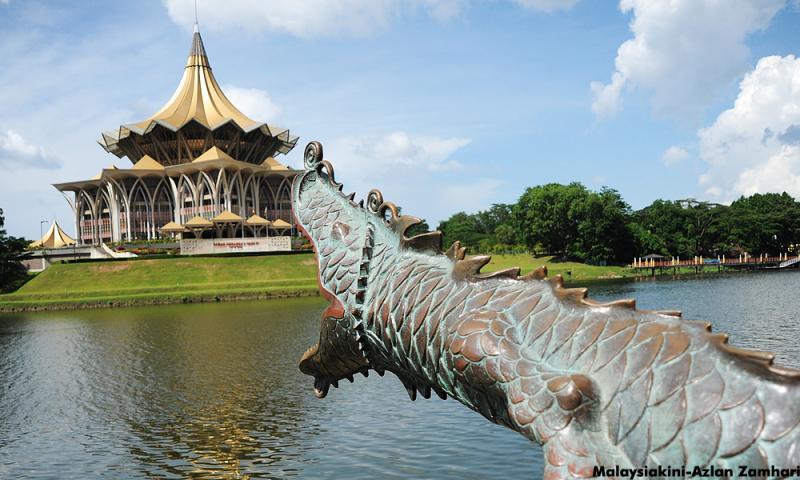ADUN SPEAKS | Today the Sarawak State Assembly – known as the General Council or Council Negeri in the early days – celebrated its 150th anniversary. I believe that it is recognised as the oldest state assembly in Malaysia, which adds even more meaning to this celebration.
One of the unique features of our state assembly, and one that I am most proud of, is the fact that any of the ethnic languages in Sarawak are allowed to be spoken during proceedings.
This is a reflection of the Sarawak of our forefathers, in which the diverse ethnicities and backgrounds of the various communities were widely accepted and respected. No one community was considered to be superior to the rest, and all were treated as equals.
I am aware that some quarters hold the view that the White Rajahs and the British administration were oppressive exploiters of Sarawak and her people.
However, it cannot be denied that they put in place a highly efficient and respected civil service and a superior educational system, that again did not emphasise the superiority of or the preference for any particular race or ethnic group.
Also, the documents left behind point to an administration that was committed to good governance, justice and fairness.
The guiding principles of the Brookes were set out in the “Nine Cardinal Principles of the rule of the English Rajah,” and were eventually to become the preamble to the state constitution.
These principles are timeless and applicable even in this day and age. It is my hope that the members of this august house will continue to be guided by the ideals carried in these nine principles.

Today, our celebration of the 150th anniversary of the Sarawak State Assembly is clouded by a prominent and pressing issue, that is the status of the native customary rights of the people over their customary land.
It is therefore timely to revisit our history in the context of the rights of the people and how these rights were viewed by the government of the time.
In the 1970 book “Rajahs and Rebels: The Ibans of Sarawak Under Brooke Rule, 1841-1941,” Robert Pringle discusses the great weight given to the customary law of the people by the government.
“The customary law (adat) of the various ethnic groups was the third foundation of the Sarawak legal system, the first two being common sense and a vague adherence to English legal principle.
“Like everything about the government of Charles Brooke, acceptance of local adat grew quietly and naturally from his early outstation experience, reinforced by the theories of his uncle.”
It was also noted that there was a “Native Mohammedan Probate and Divorce Court” and that although there was no equivalent court for either Chinese or Ibans, the customary law of both was recognised, as interpreted by Native Officers and community heads, subject to the Resident’s discretion.
In the old days, customary law was not codified in any written form. It was recognised by a respected author AJN Richards that “the customary law is alive and always changing; it lives by the spirit, and not by the letter. If it is put into the straitjacket of statutory form it will perish or, if it lives, it does so by disregarding the statute.”

In this context, the recent Federal Court’s decision in the case of TR Sandah, which ruled that a custom or adat of the people must be codified for it “to have the force of law,” was shocking and unacceptable to the native communities in Sarawak.
True to the Richards’ prediction, the NCR of the people are perishing, left in the hands of administrators, legal draftsmen, civil servants and judges who do not understand the customary laws of the people.
Even some elected representatives from within and outside this august house have failed our own communities by not defending these rights when the need arose, whether for reasons of personal vested interests and/or political expediency, or pure ignorance of these fundamental issues.
In our quest for greater development for the state of Sarawak, such customary rights over land had been trampled upon or ignored by the powers that be, creating unnecessary conflicts and tensions, which have resulted in many injuries and even deaths.
A case in point is the death of Bill Kayong. He died because he dared to speak up for the people. Even in death, he has not been accorded any justice.
‘You people of the soil, will be thrown aside’
In 1915, Charles Brooke at the sitting of the State Assembly warned our forefathers that after his time as the Rajah of Sarawak, “...others may appear with soft and smiling countenances, to deprive you of what is solemnly your right – and that is, the very land on which you live, the source of your income, the food even of your mouths? If this is lost to you, no amount of money could recover it.
“Unless you follow this advice you will lose your birthright, which will be taken from you by strangers and speculators who will in their turn become masters and owners, whilst you yourselves, you people of the soil, will be thrown aside, and become nothing but coolies and outcasts of the island.”
And today the Rajah’s greatest fears are realised. The prophecy of the betrayal of the trusting people has come to pass. While the people slept, the thieves came softly in the night and took our lands, casting us aside.
This assembly may have many “achievements” attained over the years; today ministers and elected representatives are congratulating one another while we sit in this vastly overprices building.
However, we must not conveniently forget that we are still far behind our Federation partner Malaya in development. For example, over 80 percent of our schools are classified as dilapidated while over 30 percent are critically dilapidated.

There is a lack of proper infrastructure, especially road infrastructure. More than 50 years after we formed the federation, the road connectivity in the smaller divisions and rural areas still leaves much to be desired.
In Ba’ Kelalan for example, the roads are so badly built that they hardly last a year and turn into soggy mud tracks when it rains. Last week, to attend a Native Court hearing in Kapit, I had to catch a boat from Sibu because the road has not yet been built.
There are not enough hospitals and clinics, especially in the rural areas. At general hospitals, you will see families of patients from the rural areas camped out in the corridors because they have no place to stay.
Many of the rural clinics do not have qualified medical personnel to staff them. Even at the hospitals in towns and cities, there is a lack of medical specialists.
Many villages in the rural areas still depend on generators for electricity. This is especially ironic because we have dams that produce more energy than we need, yet many of our people are not connected to the grid for power.
As at the end of 2016, 30 percent of rural villages still had no access to 24-hour electricity supply. This figure translates to 40,000 homes of 250,000 people, according to a report by Sarawak Energy.
As at March last year only 61 percent of rural Sarawak had access to treated water, while the remaining 39 percent representing 114,000 households have to depend on other sources for water.
Where are we now?
Every time I touch on the lack of physical development for Sarawak, I am reminded of the statement of the so-called founding father of Malaysia, Tunku Abdul Rahman, when he said “that one of the principal objectives in the formation of Malaysia was to further the economic development of the Borneo Territories so that their standards of living and technical skills might be raised, and a firm basis provided for accelerated economic growth… so that the gap between a relatively backward state and the advanced would be narrowed and not widened.”
Sadly, we are not much different from when we first began.
The members of this assembly have the moral responsibility to right a wrong done to the people of Sarawak. Let us mark this 150th anniversary by reflecting on the past, because as someone said, “life can only be understood backwards, but it must be lived forwards.”
I want to believe that all of us who are sitting in this august house want the best for our beloved state of Sarawak and its people although we come from diverse political backgrounds.
On such an auspicious occasion I wish to say on behalf of my other colleagues from the opposition to pledge to do our best as per our oath of office to speak for and defend the rights of all Malaysians under the federal and state constitutions notwithstanding their colour or creed.
On a personal note, I look forward to the amendment of the Sarawak Land Code to recognise and respect the rights of the indigenous people of Sarawak to their customary rights land, which is their life and their livelihood.
This will be an achievement, which state assembly can truly be proud of. This will be an act, which will honour our forefathers and what they stood for.
Lastly it is a great disappointment that the present state government did not consider it appropriate to allocate time for the opposition members to speak on such an auspicious occasion, which is a celebration of all members and the people of Sarawak.
It is an irony when we say that we are celebrating our 150th anniversary of the assembly and as the oldest in the country, yet the BN government is too immature to allow “free speech” for members of this august house.
I look forward to the day when we can truly say that we are a government of the people, for the people and by the people.
BARU BIAN is the state assemblyperson for Ba’ Kelalan and Sarawak PKR chairperson.
The views expressed here are those of the author/contributor and do not necessarily represent the views of Malaysiakini.


